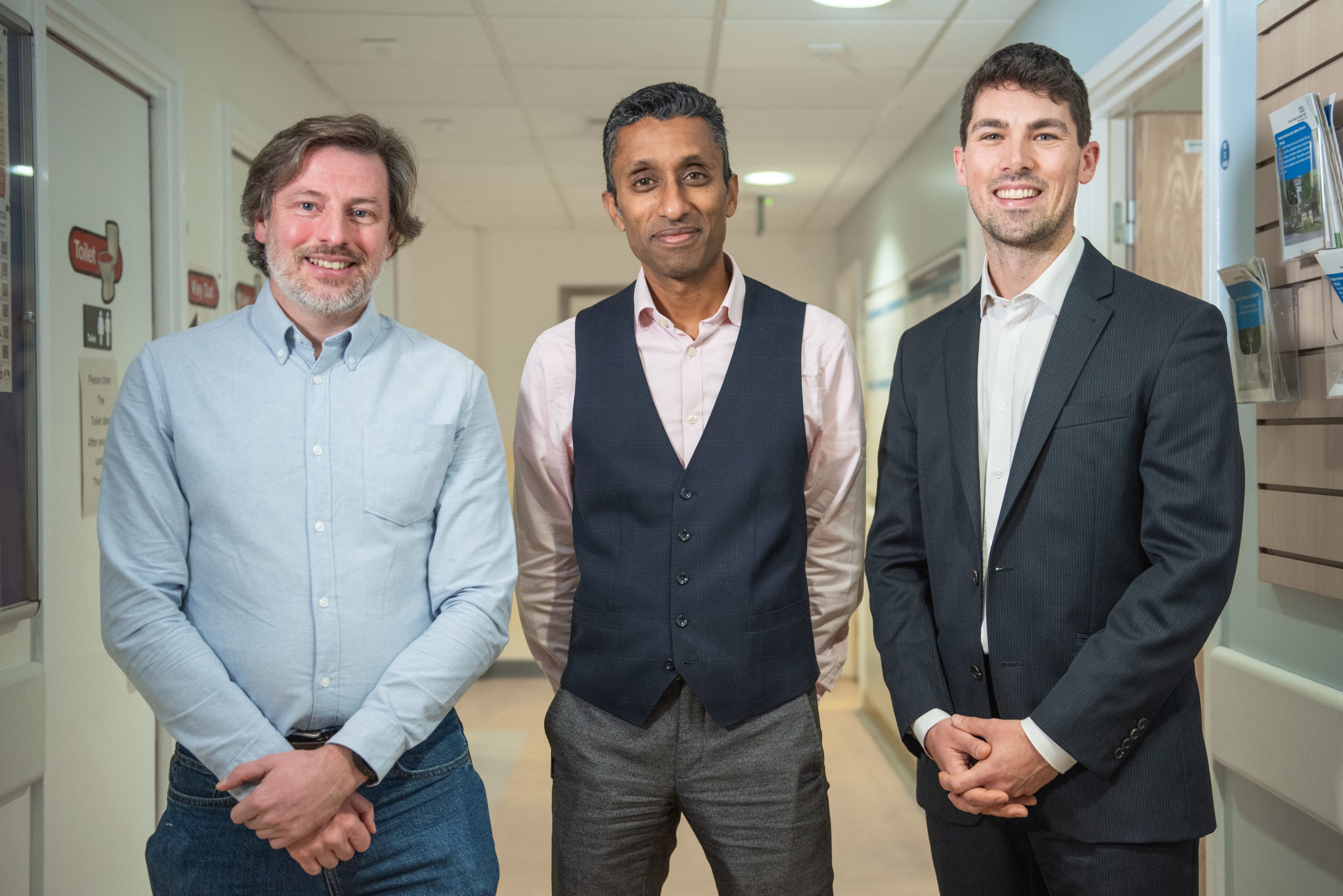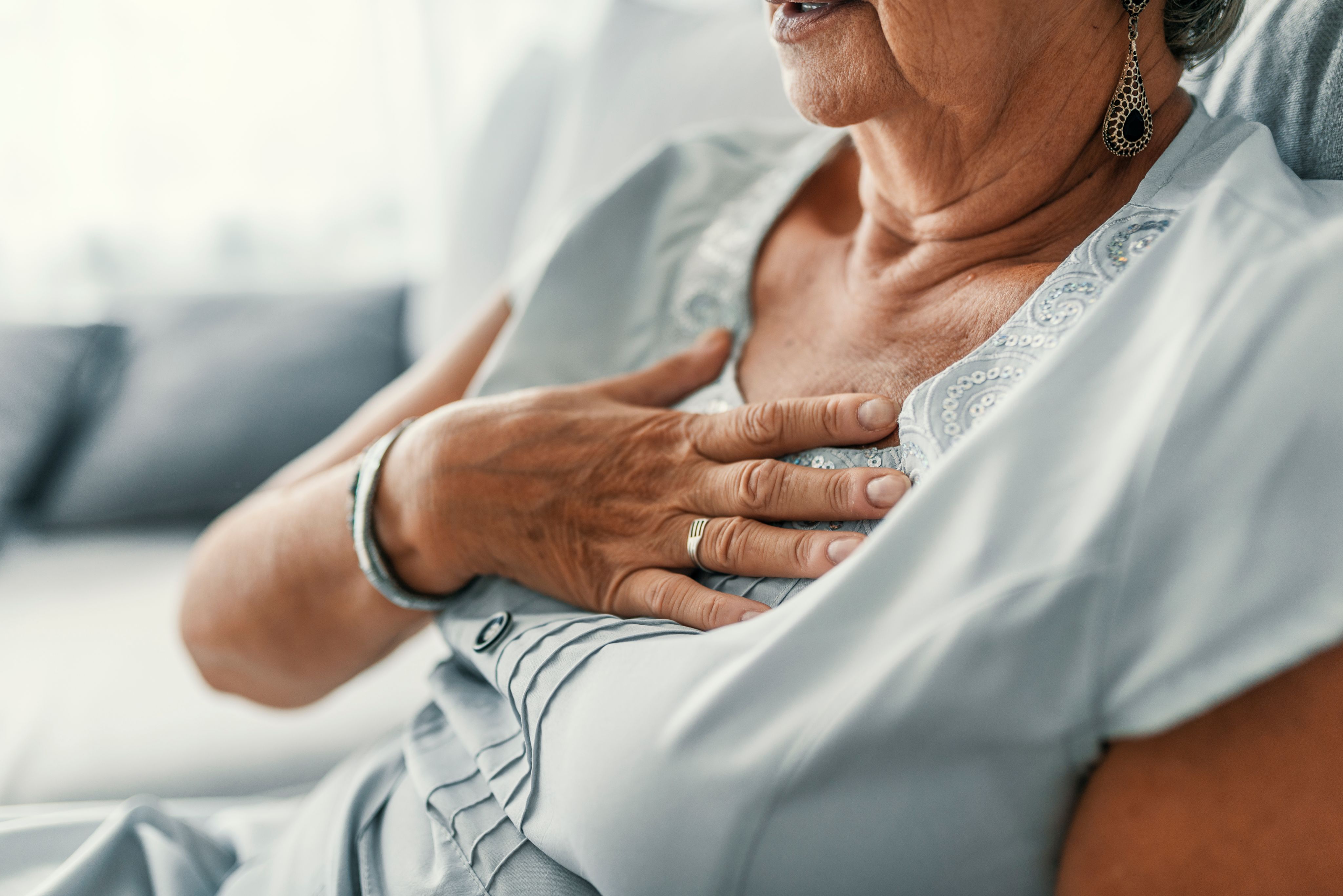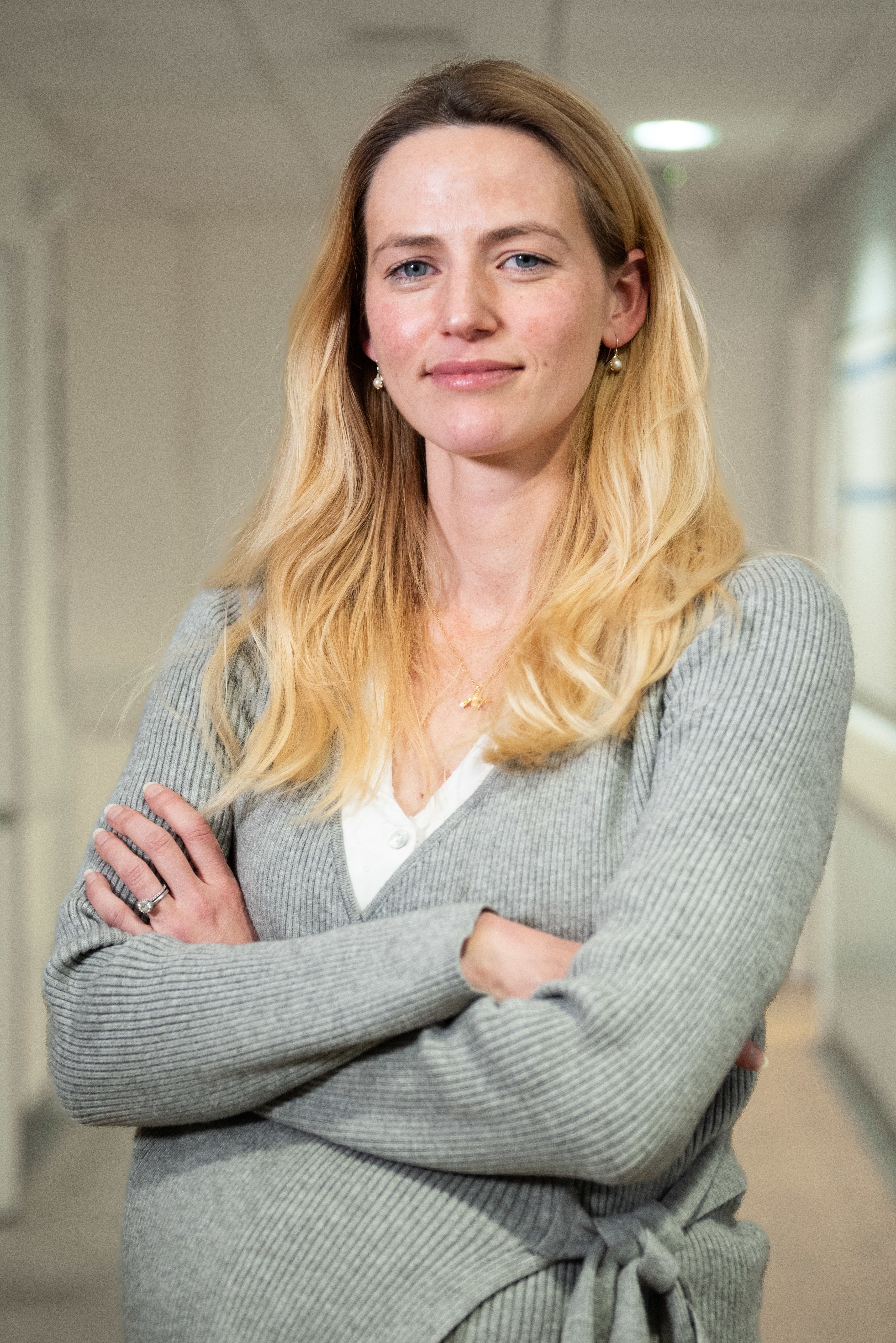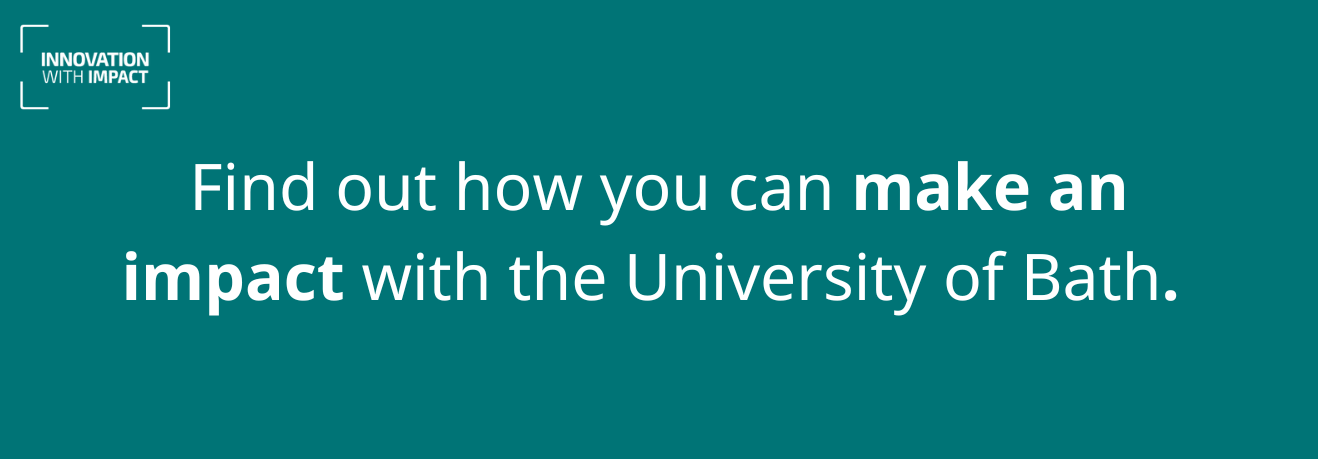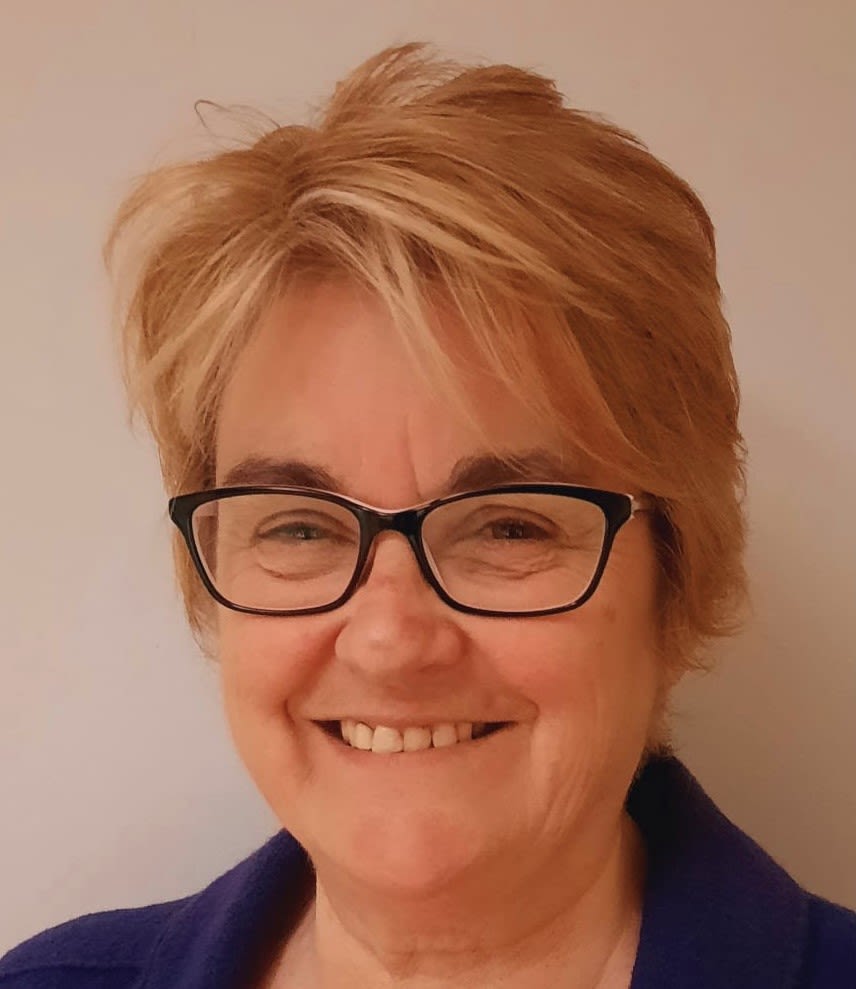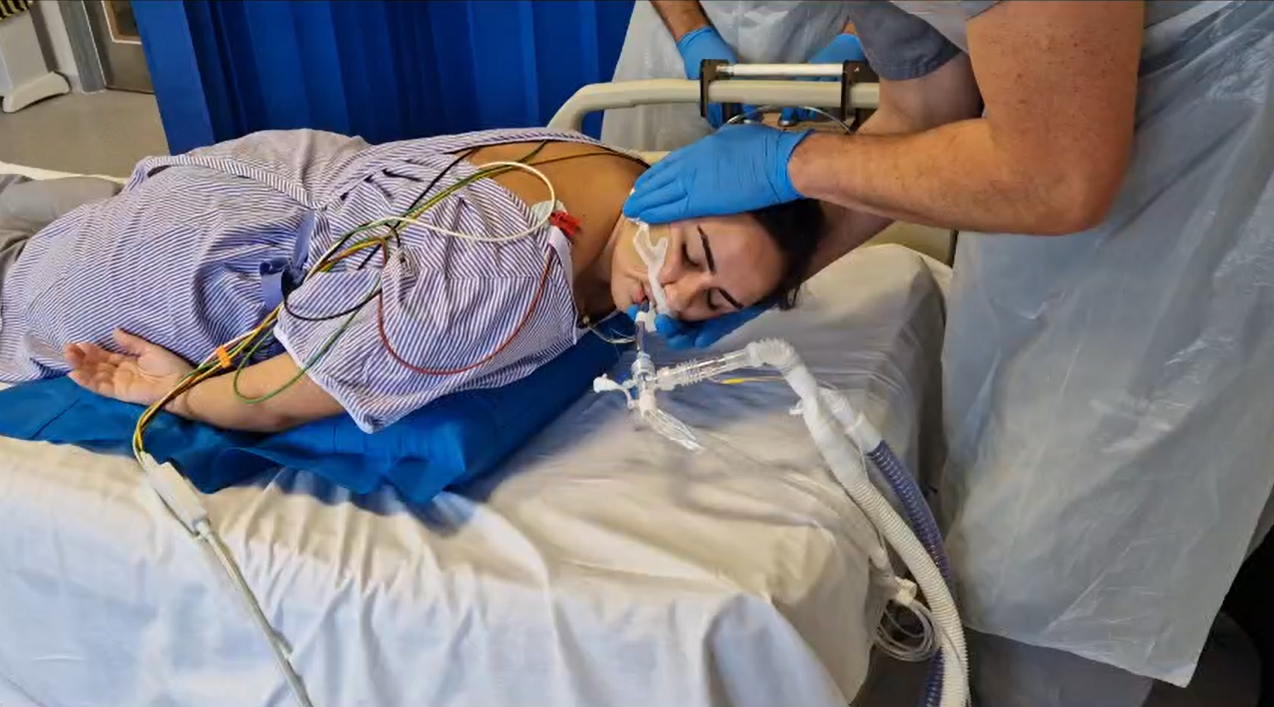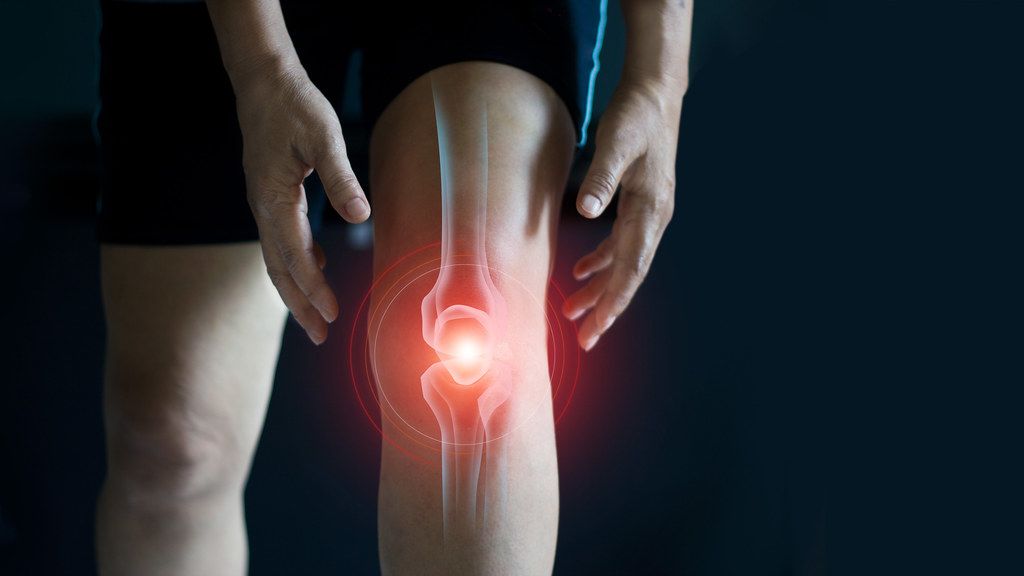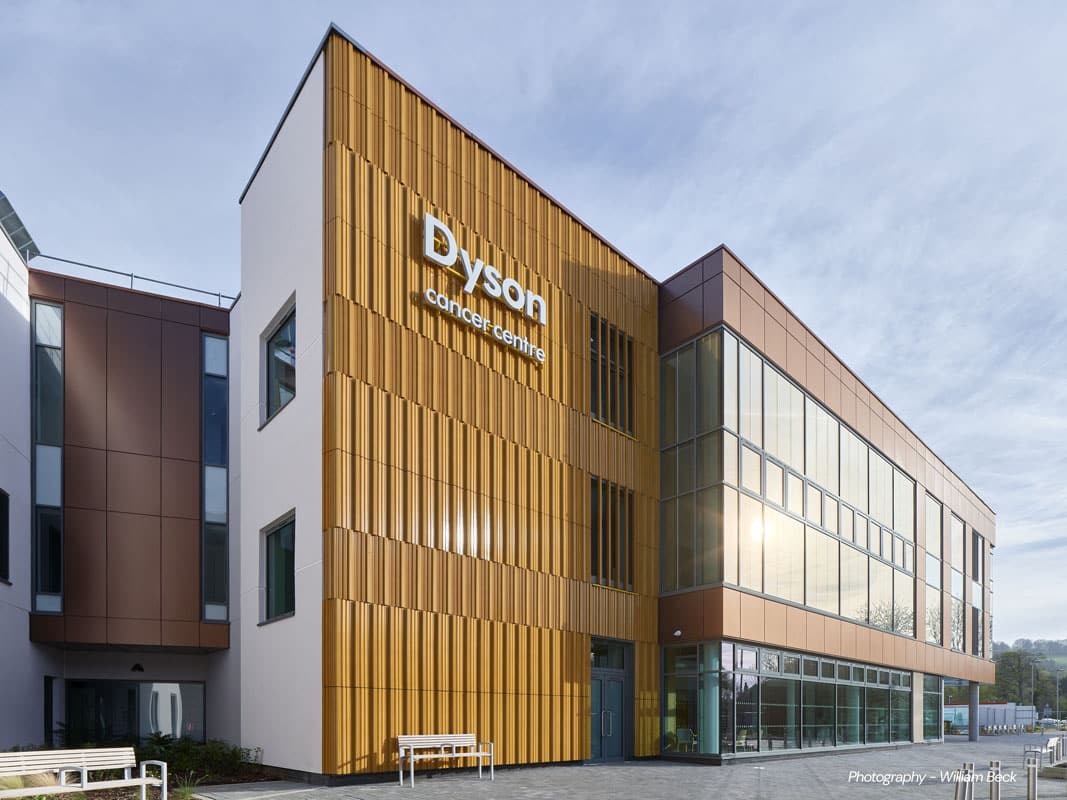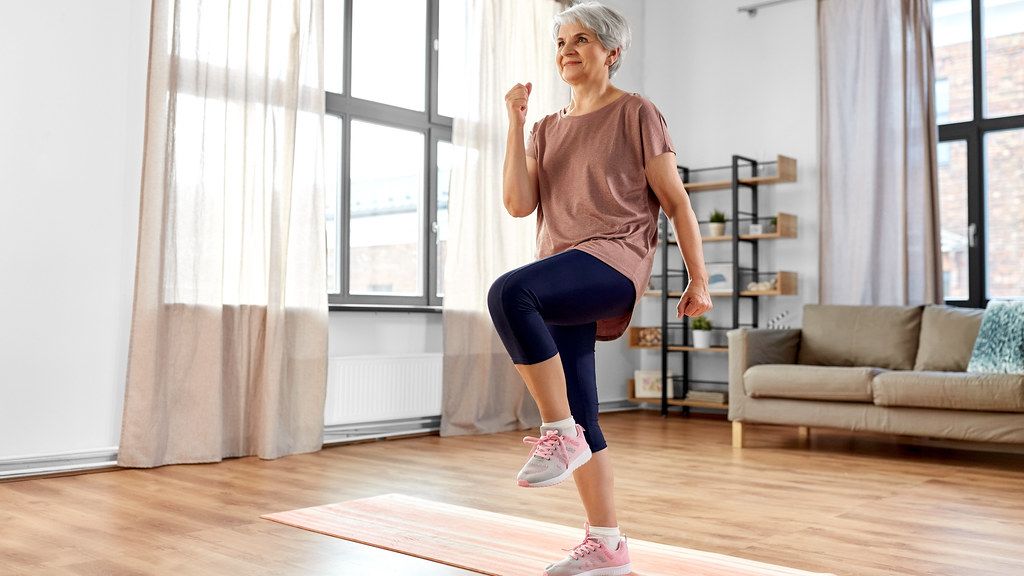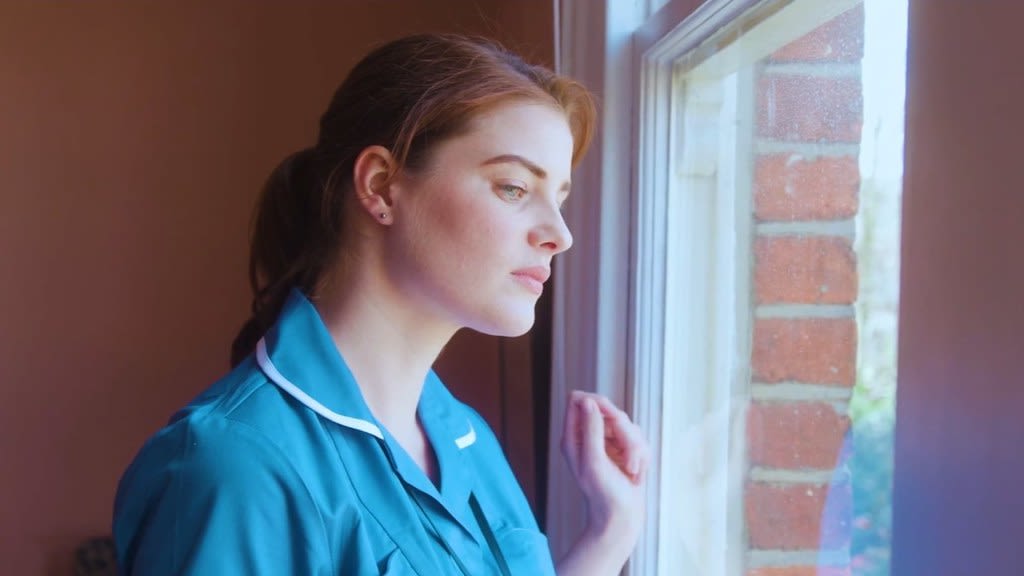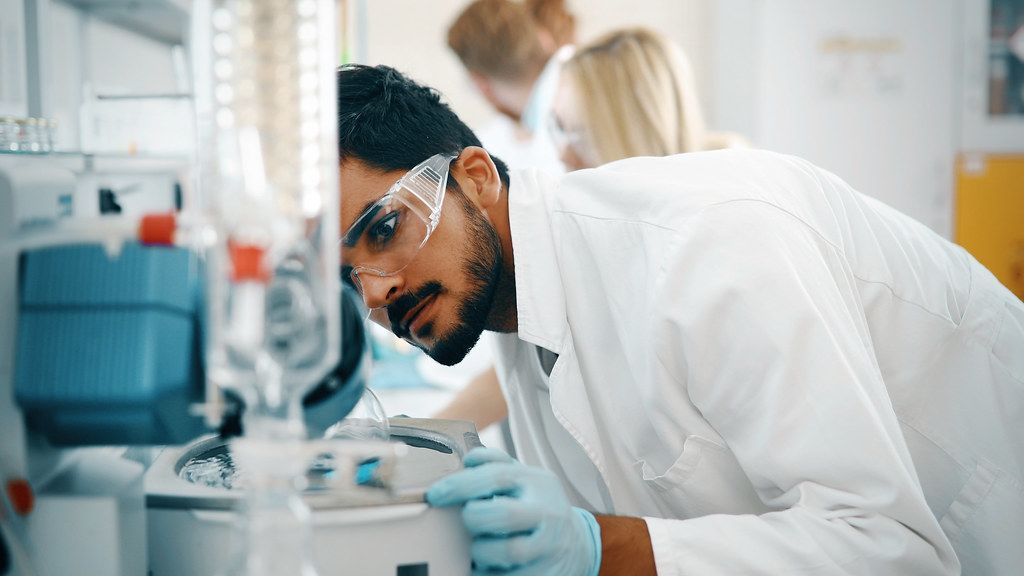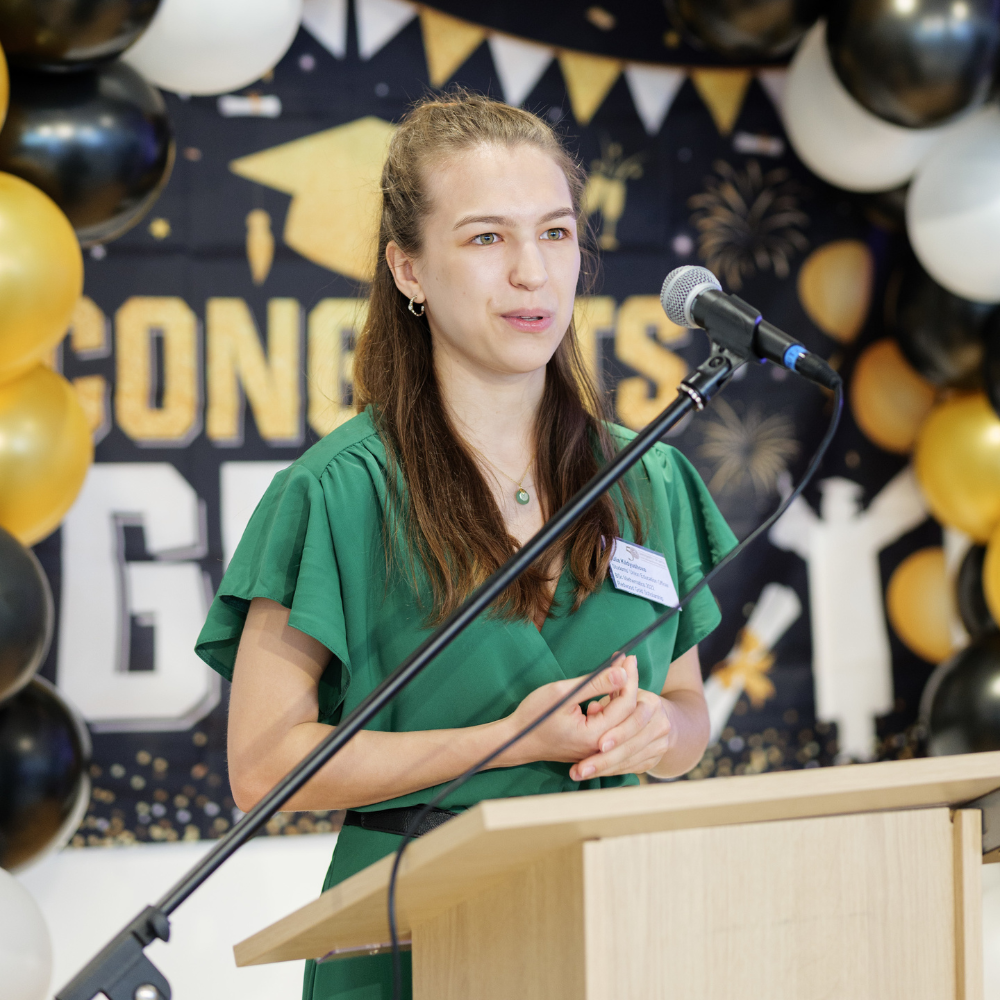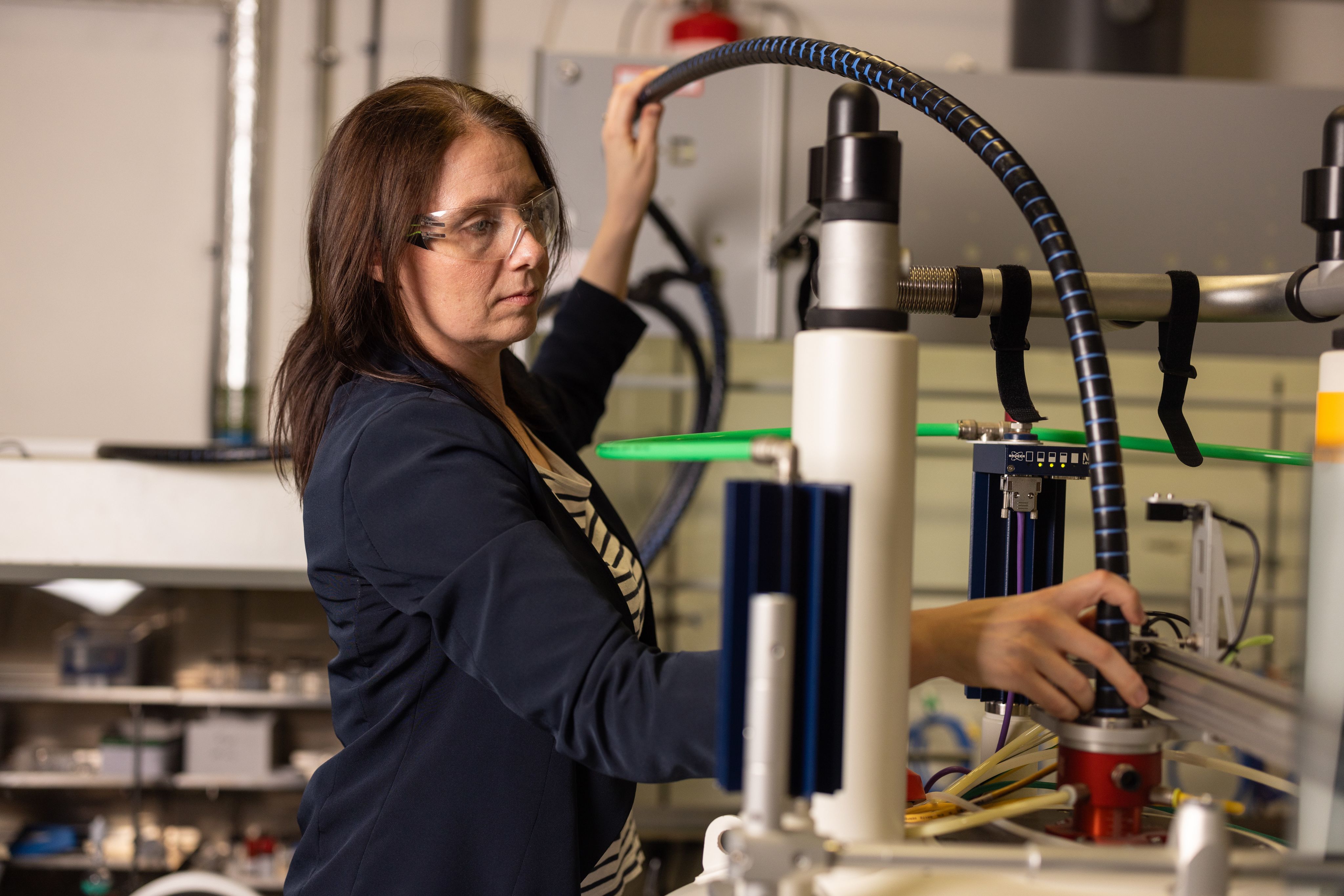Driving Healthcare Innovation
How research from the Royal United Hospital and the University of Bath is changing lives
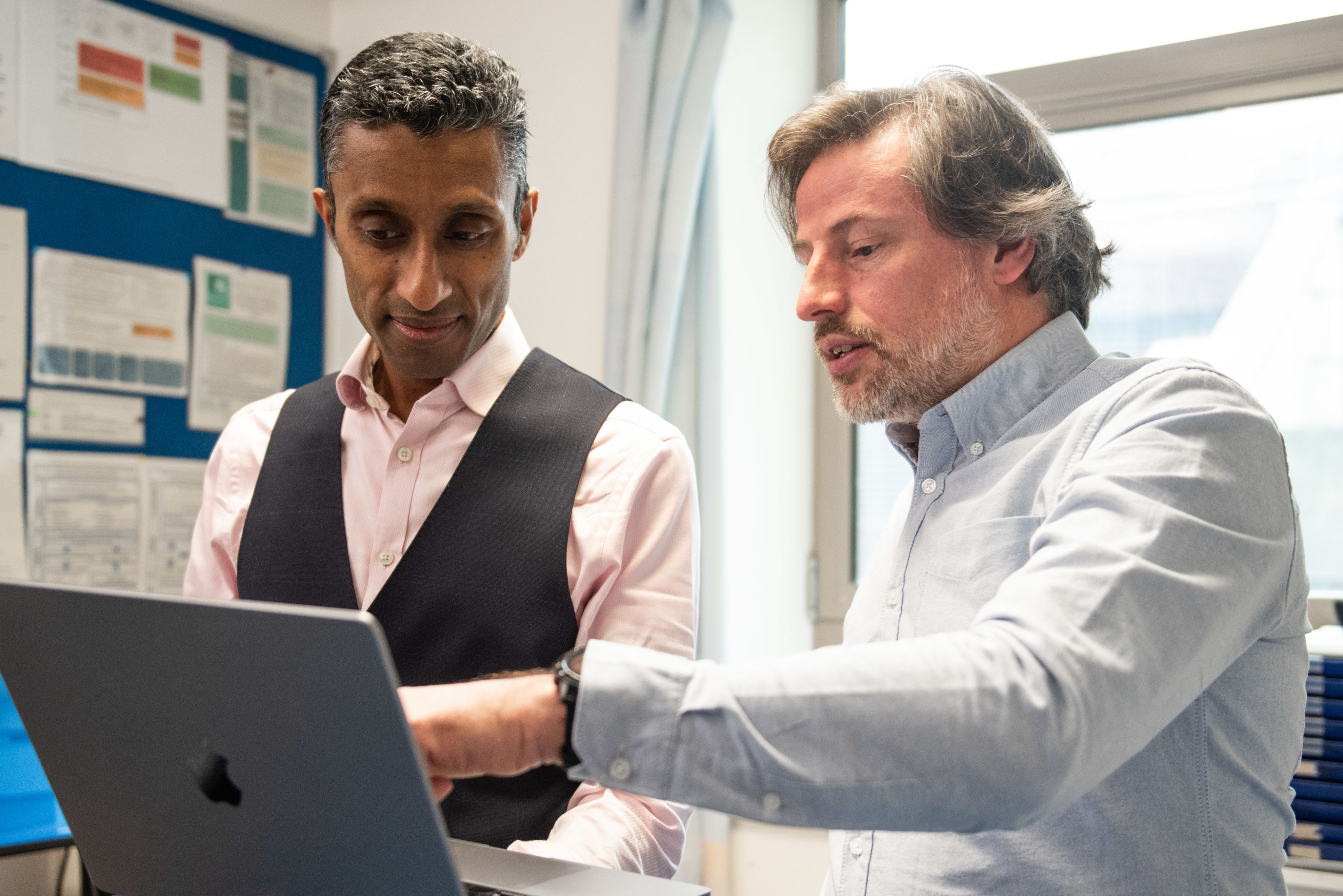
If you walk through the doors of the Royal United Hospital (RUH) in Bath, it won’t be long before you encounter thriving partnerships between the RUH and the University of Bath that are changing the way healthcare is delivered.
From life-saving treatments to pioneering technology, this collaboration is central to how the hospital works. Since 2024, 12 joint projects have linked the hospital with the University, building on years of innovation. They’ve tackled everything from AI-assisted blood clot detection to developing a more precise bone-drilling medical device. These partnerships alone have attracted over £1.6 million in funding from the likes of UK research councils, government agencies, industry and charities. It’s an investment that’s helping to improve care for patients across Bath, Northeast Somerset, and beyond.
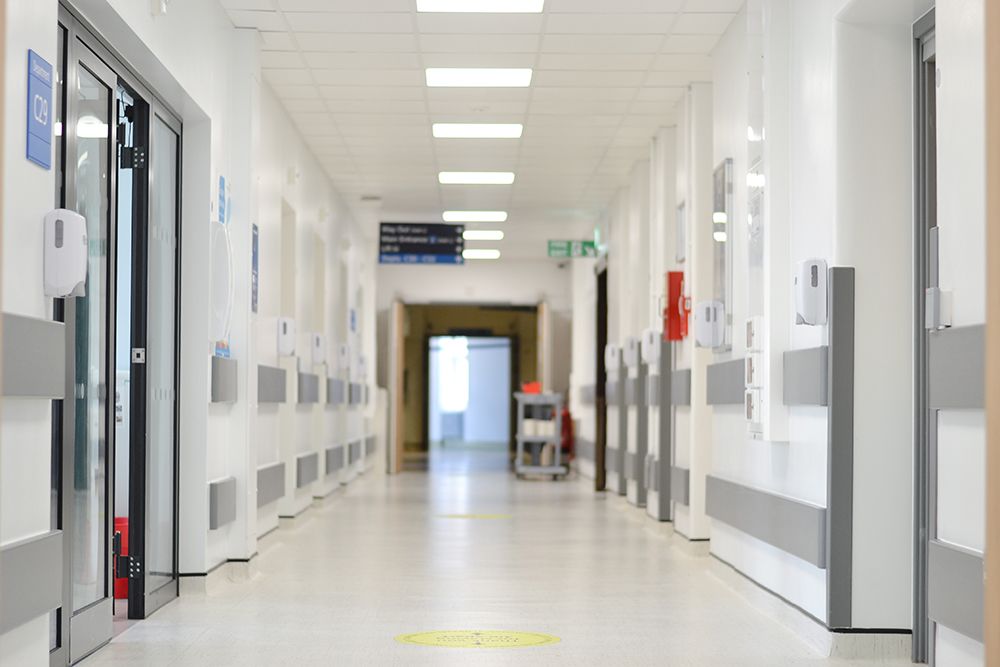
"By working together, we can drive innovation in healthcare and improve outcomes for our local community."
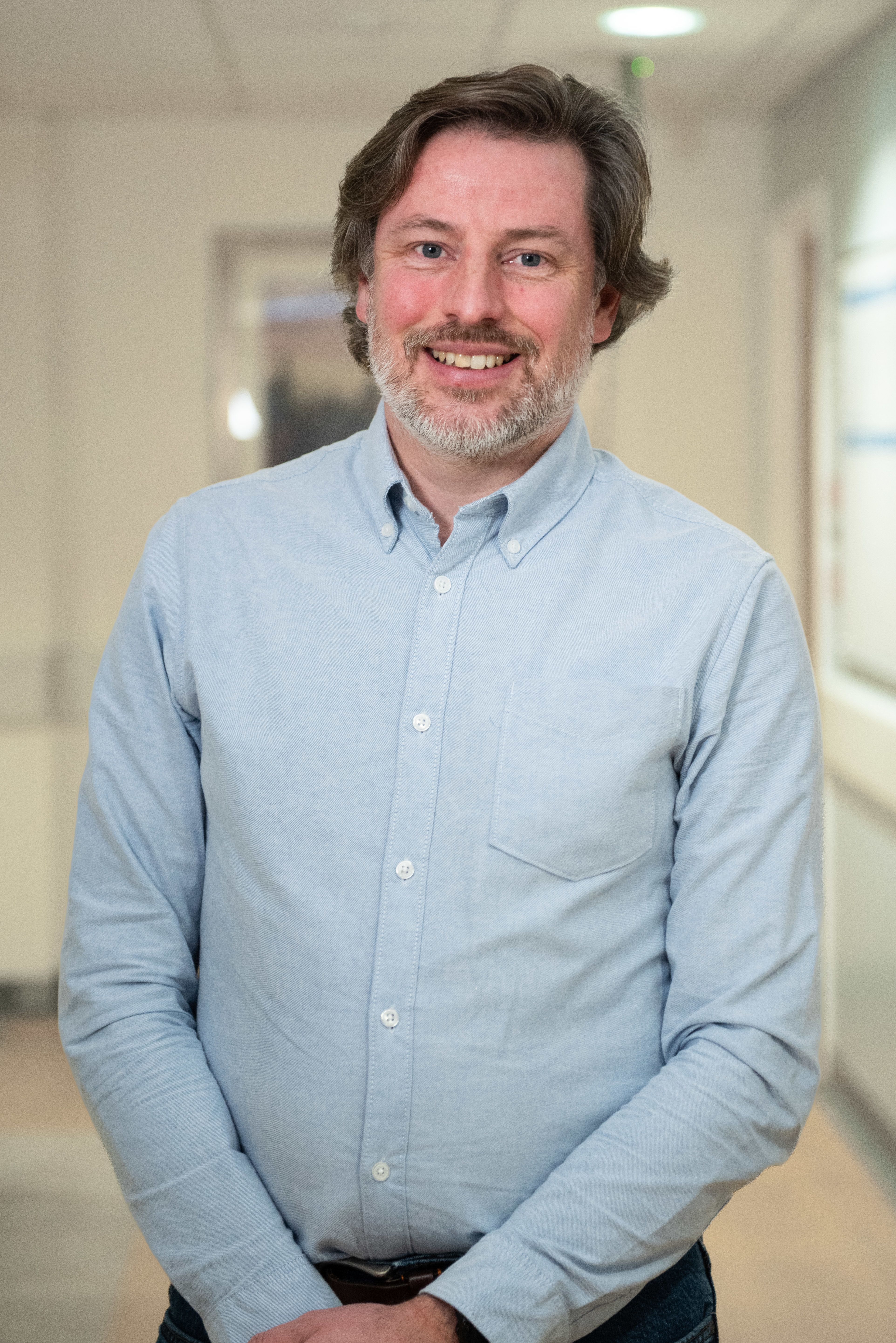
IngeniumAI: A Local Breakthrough with Global Potential
One of the exciting success stories from this partnership is IngeniumAI, a spin-out company launched in February 2023 by University of Bath researchers and an RUH clinician. Co-founded by Dr Andrew Cookson (Senior Lecturer, Mechanical Engineering, University of Bath), Dr Jeff Clark (former University of Bath postdoctoral researcher), and Professor Jay Suntharalingam (consultant respiratory physician, RUH), the company began a £300,000 Innovate UK funded project in March 2023, setting them on a path to revolutionise the diagnosis of Pulmonary Hypertension (PH)—a rare but potentially fatal heart and lung condition.
PH is notoriously tricky to catch early. Its symptoms, such as breathlessness or chest pain, often mimic more common conditions. This means that many patients aren’t diagnosed until years later, from an expensive and invasive procedure, when the disease has already progressed. IngeniumAI aims to change all that.
Using advanced machine learning and associated technology, the software analyses routine chest CT scans to spot early signs of PH—things that might be missed by the human eye of a general radiologist. This means patients can be referred to a specialist months, or even years, earlier.
"The software doesn’t replace the need for the definitive test but it ensures patients are on the right path far sooner. In some cases, diagnosis could drop from two years to just a few weeks.
The RUH has played a key role in developing the technology. Professor Jay Suntharalingam says the hospital’s radiologists and clinical teams have been crucial to this collaboration effort between the University and the NHS.
"Their feedback and real-world data have shaped how the software works. Early diagnosis not only improves outcomes for patients—offering them an improved life expectancy as well as a better quality of life and a faster return to work—but also saves the NHS money by reducing long-term complications and hospital stays."
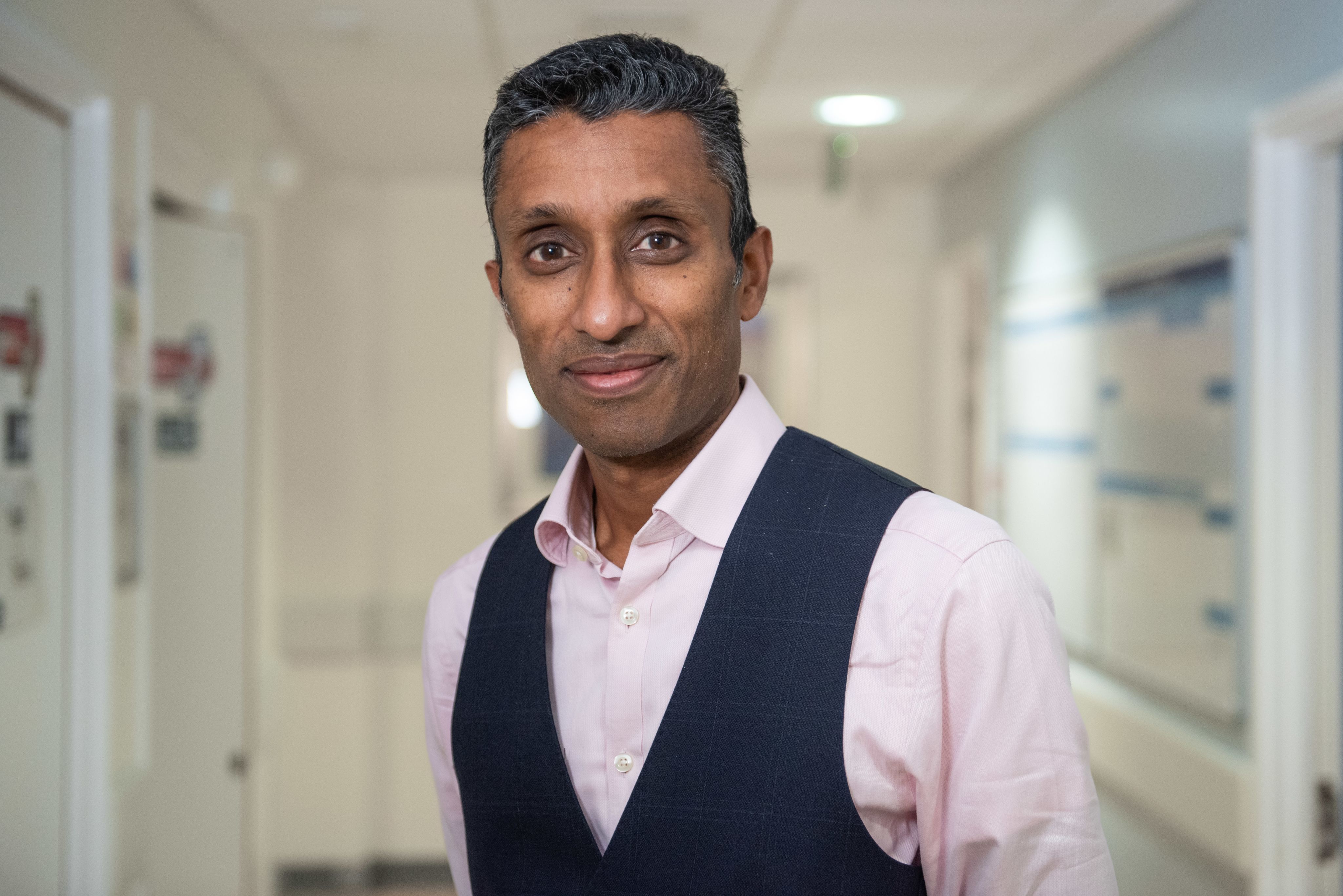
Pia Charters, a Cardiothoracic Radiologist Fellow at the RUH has supported IngeniumAI since its infancy. She says for non-specialist radiologists, 'it’s like having an extra set of expert eyes' that ensure potential cases are identified and referred promptly.
"This AI technology can run in the background, analysing CT scans taken for other reasons—like chest pain or pneumonia—and flagging signs of pulmonary hypertension that might otherwise be missed. This means earlier diagnoses, better outcomes for patients, and added value for clinicians."
The next big steps for IngeniumAI are evaluating the software in real clinical settings and gaining regulatory approval. If successful, it could become a standard tool for hospitals across the UK.
IngeniumAI is just one example of what can be achieved when academia and healthcare unite. RUH clinicians bring a deep understanding of patient needs, while University researchers provide cutting-edge technical expertise. Together, they create solutions that bridge the gap between research and real-world impact.
"Academics bring expertise that’s incredibly valuable. Sometimes, I don’t realise what’s possible until they say, ‘We’ve modelled the pulmonary trunk and now we can model the aorta. Collaborations like this don’t just solve academic puzzles—they lead to real improvements in patient care."
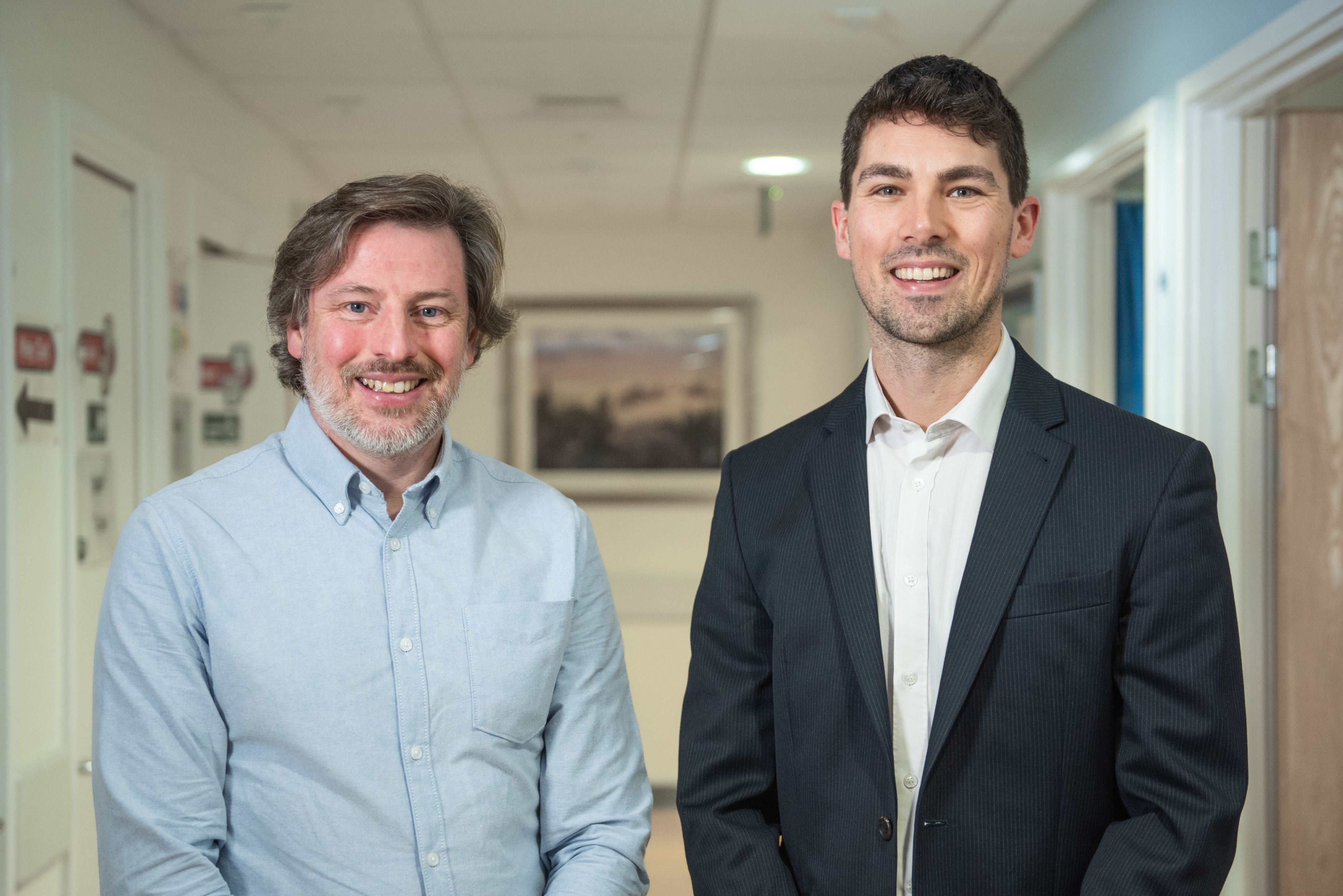
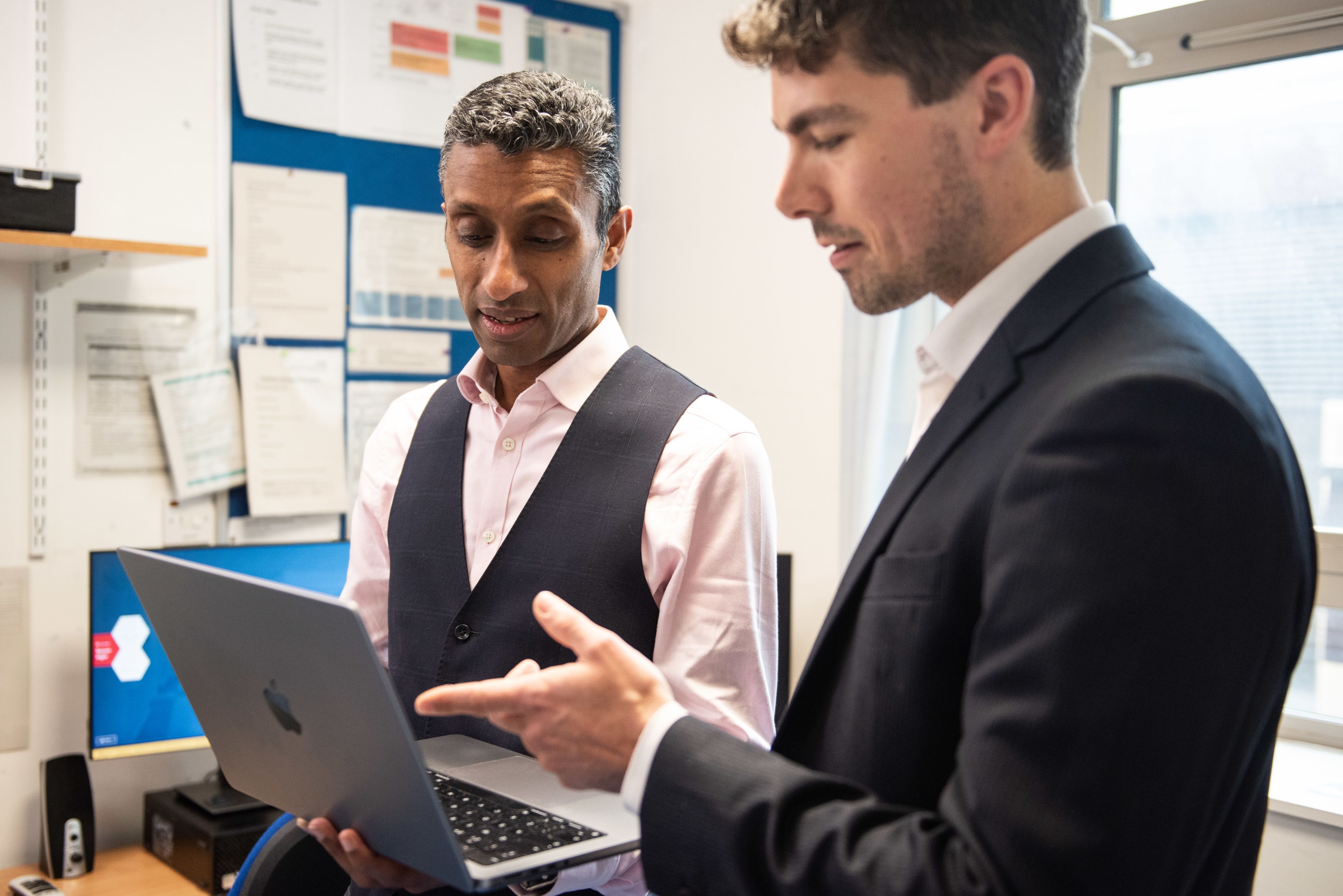
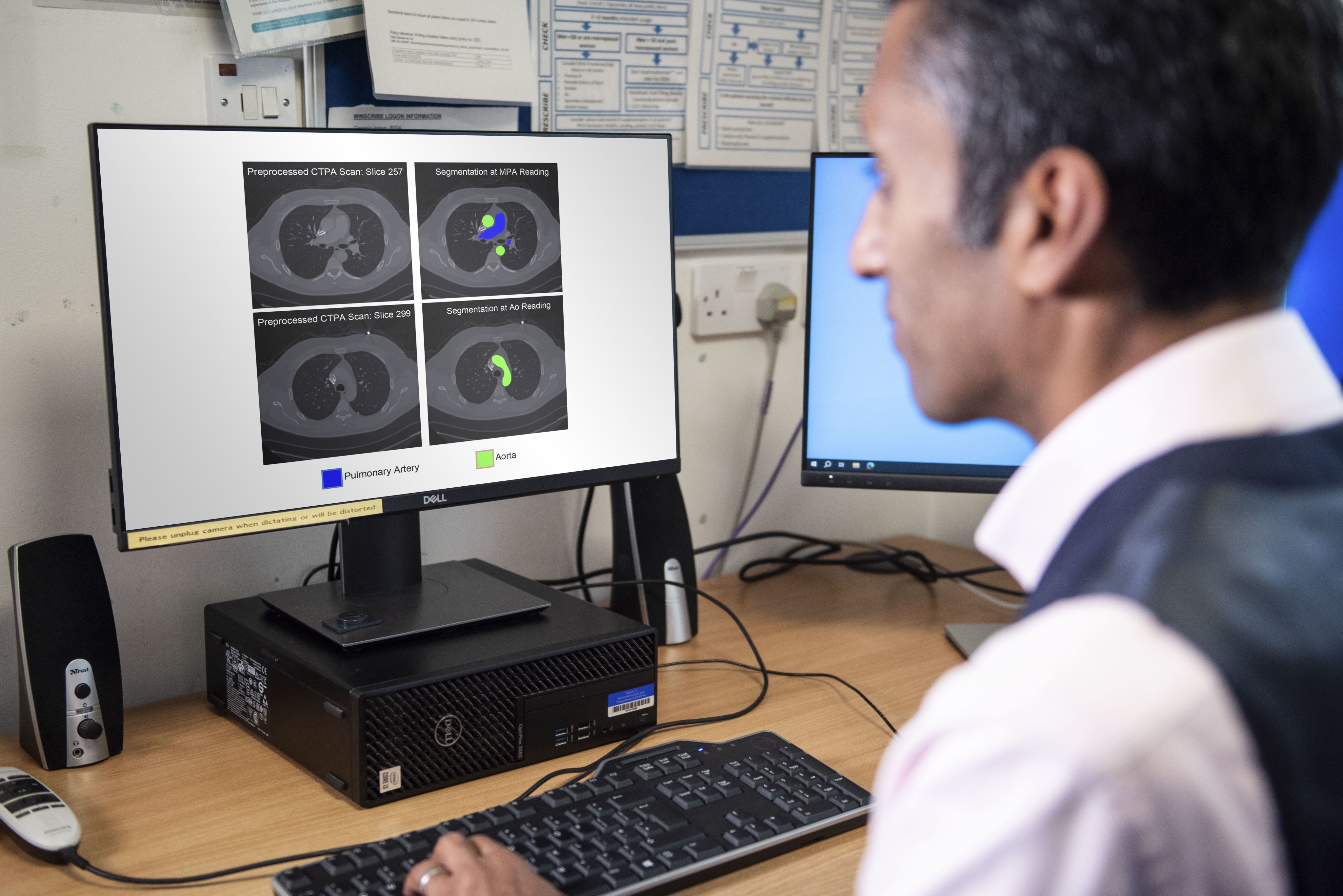
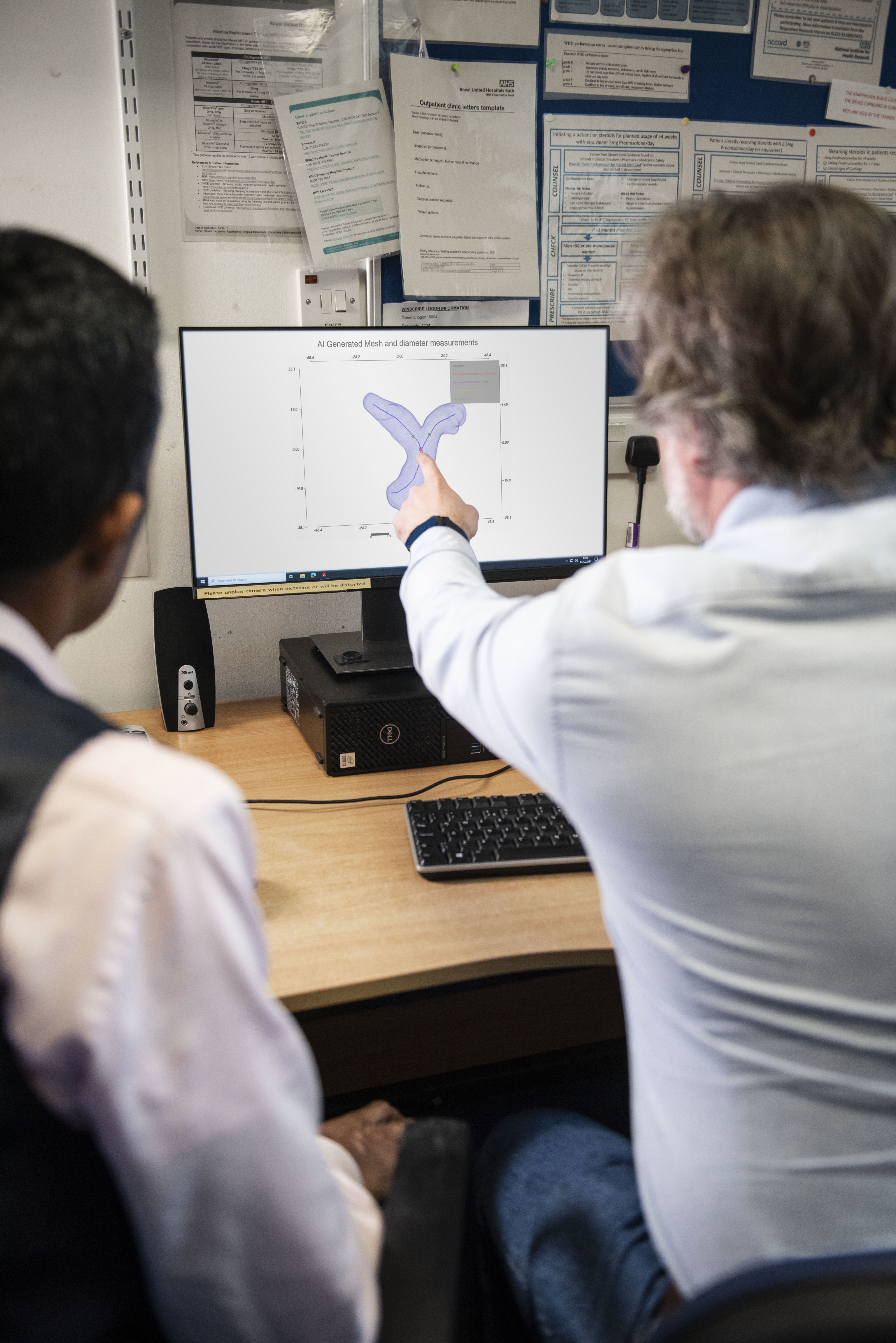
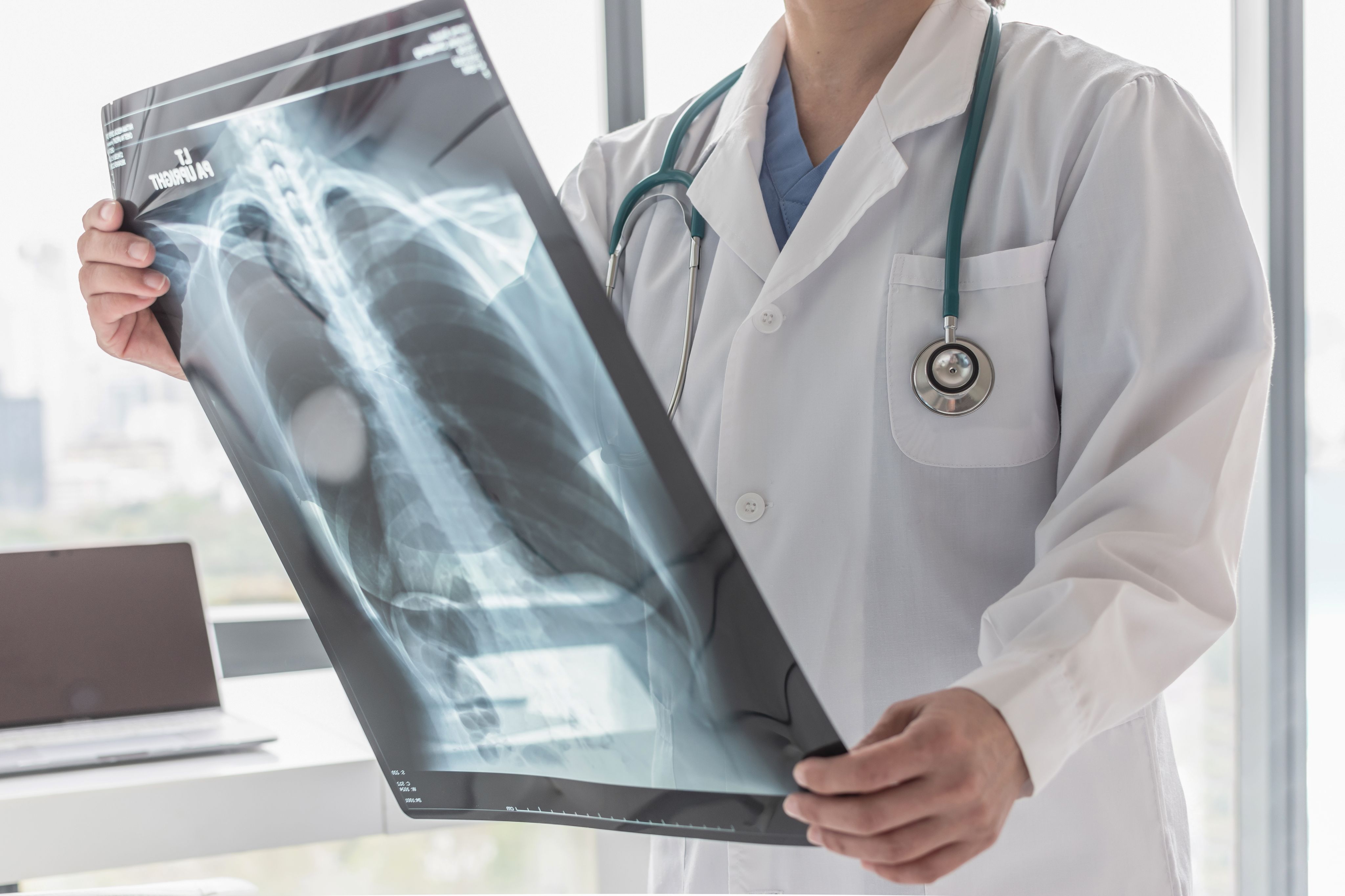
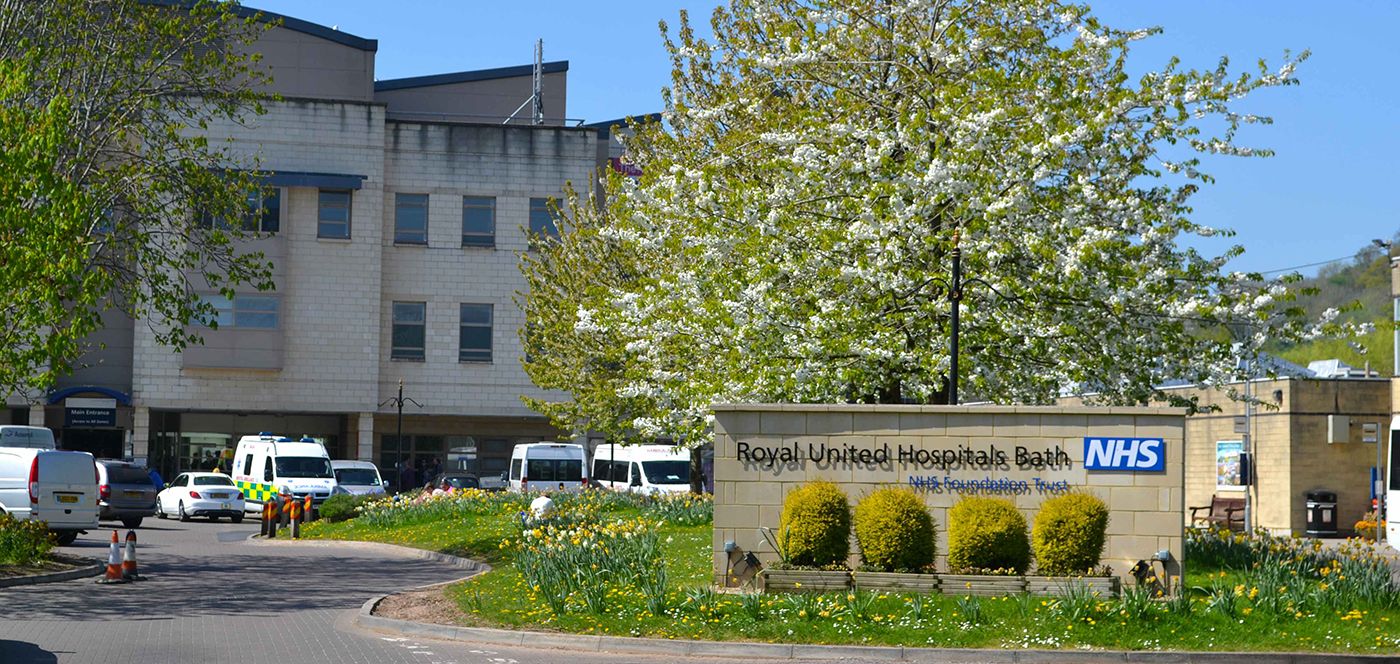
2020
With early funding from the RUH Research Capability Funding, Dr Jeff Clark and Dr Andrew Cookson begin developing the disease detection system with support from medics at the RUH.
2021
Support from the University Impact Fund and RUH Research Capability Funding enables the team to progress the technology. Funding from the University of Bath’s EPSRC Impact Acceleration Account enables navigation of the complex world of medical device regulations. Backed by Innovate UK’s ICURe programme, the team explores potential commercial markets for the technology.
2022
The team secure a £300,000 Innovate UK grant.
2023
IngeniumAI is spun-out and work begins on the Innovate UK grant, allowing them to hire a team, taking development to the next level.
2024
The AI algorithm outperforms expert clinicians at detecting likely presence of PH in patients. The technology is under evaluation by a pharma trials company.
2025
The team are preparing to showcase the system within the NHS and are progressing towards regulatory approval. With market launch set for 2027, the company is poised to make a game-changing impact on healthcare.
A vision for the future
While IngeniumAI’s focus right now is Pulmonary Hypertension, the team has big plans. They’re already exploring how their technology could help to detect early signs of other conditions. Getting NHS and NICE approval will take time, but the team is optimistic about what lies ahead.
By 2027, IngeniumAI hopes to be a leading provider of innovative disease detection tools, not just in the UK but around the world.
“Developing what started as a research project into a company has been incredibly rewarding. We’re looking forward to continuing our close collaboration with the RUH and taking the next steps towards transforming healthcare.”
Innovation in action
The RUH’s dynamic research programme conducts around 200 studies annually, with 3,000 patients participating. Supported by a dedicated team of 60 multidisciplinary staff, the hospital collaborates closely with the University of Bath to secure £1.5–£2 million in external funding each year. Together, they drive forward groundbreaking projects that improve patient care and healthcare outcomes across the region.
"Our collaboration is about more than just the University and RUH—it’s about making a difference in our community. Bath is our home, and we’re committed to creating meaningful, lasting change."
For the people of Bath, it’s a source of pride to see their local hospital and university driving change on such a scale. Together, they’re proving that the best innovations aren’t always found in London or Silicon Valley—they can start right in the heart of Somerset.
Julie Barnett
"The University’s ability to turn ideas into practical solutions is transformative. I’ve been involved in several of the collaborative projects and it is so rewarding to see the teams working closely together to achieve real, workable and innovative solutions to improve the lives of patients.”
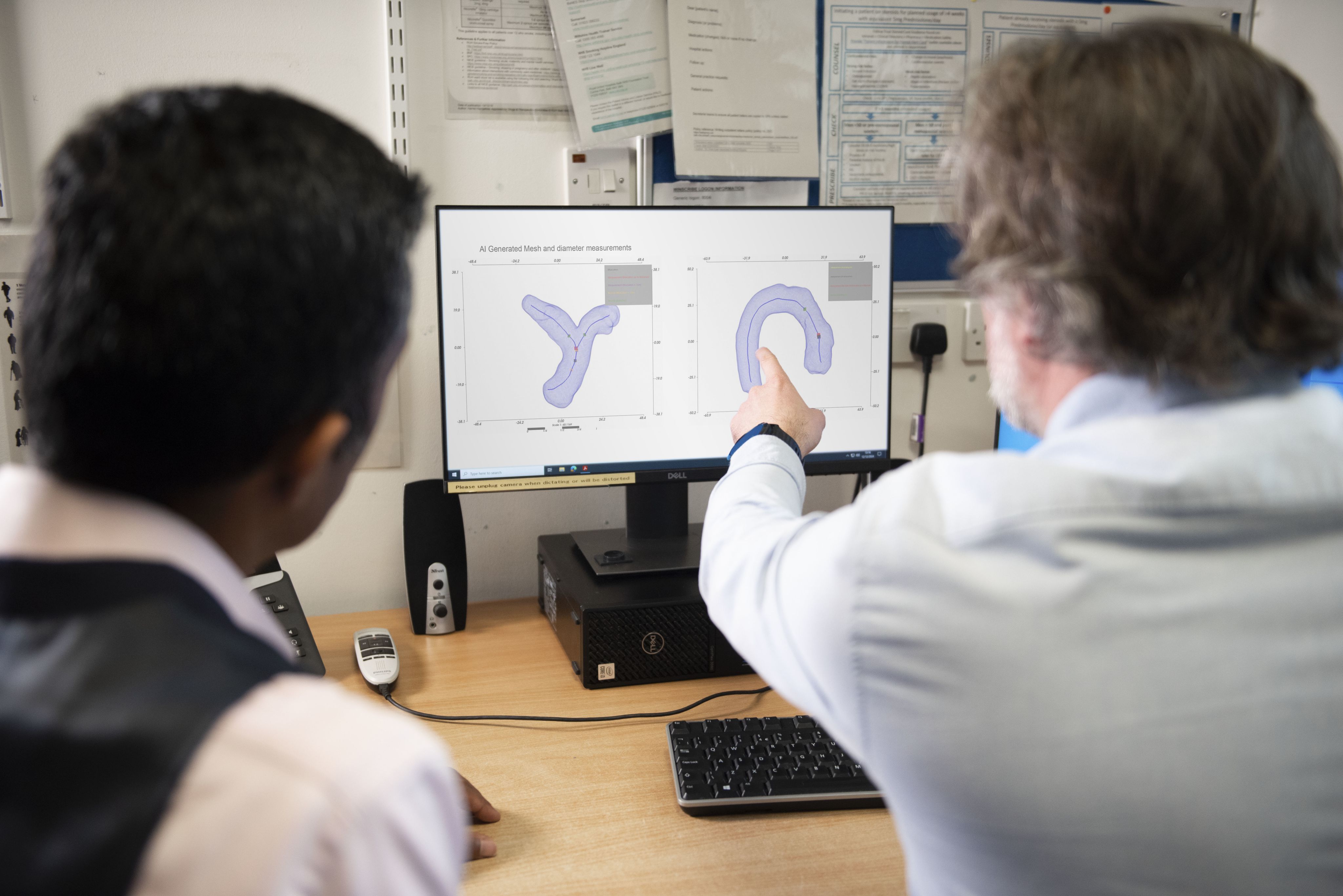
A snapshot of innovation between the RUH and University of Bath
Inflatable Cushion
Engineers are developing an inflatable cushion to assist ICU staff in safely moving patients with acute respiratory conditions. The "Bath Mat" reduces the need for seven staff to two, cutting repositioning time from 30 minutes to under 10. It also reduces injury risk to staff.
3-D Implants
Patients with knee osteoarthritis are receiving 3D-printed titanium-alloy implants developed by Professor Richie Gill and his team. These implants aim to make surgeries faster and safer, building on previous work using machine learning to identify and classify hip fractures.
Cancer Research
Improving cancer patient outcomes in collaboration with the Dyson Cancer Centre, projects range from developing technologies for early cancer detection to studying how regular exercise affects tumour activity. Trials are also underway to improve ovarian cancer detection.
Exercise Snacking
Dr Oly Perkin and Dr Max Western from the Department for Health, have successfully trialled short, structured bursts of muscle strengthening exercise for patients in the Local charity ReMind Memory Clinic. This “exercise snacking” approach has been incorporated into care for patients on the OPU at the RUH to prevent patient deconditioning during hospital stays.
Super Rehab
Prof Dylan Thompson and Prof Fiona Gillison from the Department for Health are testing the impact of a high-level, well-resourced one-to-one support programme for patients with heart disease. Working in collaboration with the RUH’s cardiology department and with support from RUHX, the hospital’s charity and the National Institute for Health and Care Research (NIHR).
Helping Midwives Thrive
Dr Rachel Arnold and Dr Lee Moore from the Department for Health have created a health and wellbeing support animation to support midwives at the RUH thrive at work.
Get in touch
Join us in creating a healthier, more sustainable, more connected future for us all.
We work in partnership with businesses and industry to enable innovation and growth. Learn about our consultancy services, Knowledge Transfer Partnerships, technologies available for licensing and more on Enterprise and entrepreneurship.
Our donors and supporters help us achieve real world impact that changes lives. You can support our research here.
We can support your business through access to expertise, innovation and funding.
There are several ways that you can partner with the University of Bath, including contract and collaborative research, as well as KTPs and Consultancy. Contact us to find out more. You can also search our research portal to find a researcher.
Hear more about our research
Research@Bath highlights our latest research and innovation news and events and highlights opportunities for engaging with us.
